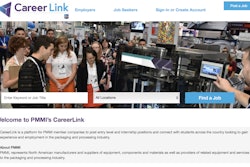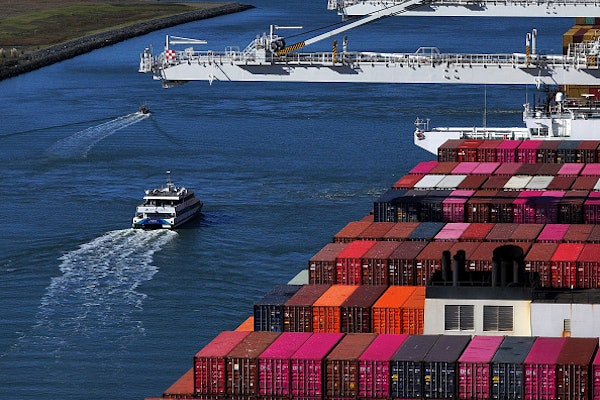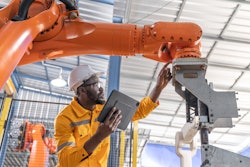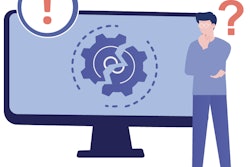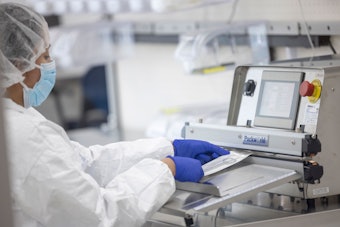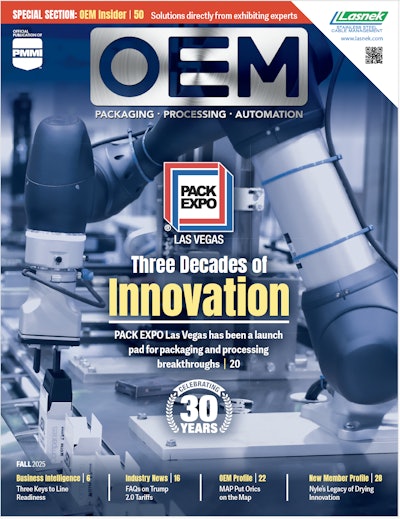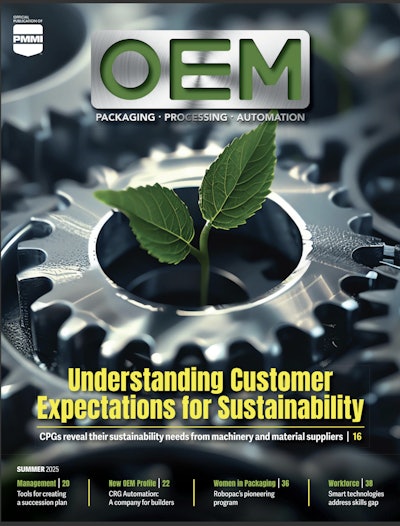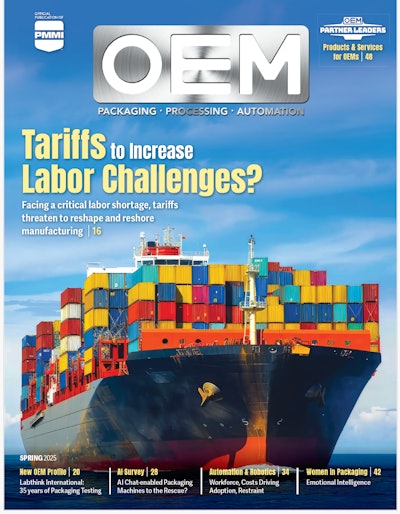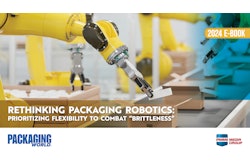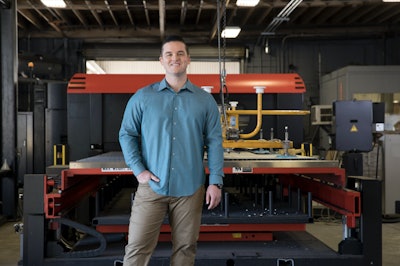
As the director of business development for Can Lines Engineering, based in Downey, Calif., Tim Jolly is responsible for staying on top of new trends, shifting markets and emerging opportunities for the container and material conveying systems manufacturer. Jolly also serves on PMMI’s Emerging Leaders Committee where he is actively investigating new ways to attract talent to the industry in an effort to help bridge the skills gap.
OEM: How did you find your way to the packaging and processing industry?
I came from a business development role at an electrical company that did power distribution and programming as a sub-contractor for Can Lines Engineering (CLE) in the brewery segment. I continued to build a relationship with CLE because I saw how many different markets they served, and I wanted to be involved. After completing a couple of projects with CLE, I got to know their team and they ended up recruiting me. It’s been one of the best moves I have ever made.
OEM: How does CLE differentiate itself, and how do you contribute to that?
Our reputation is what stands out to me. Our company has earned its reputation over the course of 58 years, and I have yet to find negative feedback across generations of customers. The family environment we have created at CLE naturally extends to our customers, and I believe they can feel it. The type of trust and attention we give each other internally is only amplified when dealing with our customers and it shines through in our execution of any project. Our reputation stems from a culture of attention to detail, preliminary planning, stellar installation and field services, minimal to no change ordering and doing whatever it takes to get a job done on time and within budget. I contribute to this culture by simply being a part of it and absorbing as much information and advice as I can from the colleagues who have been with us nearly 40 years. That type of mentoring is truly invaluable.
OEM: How do you help your company stay on the leading edge?
In my opinion, it all starts locally. California is a huge produce, food and beverage state with a heavy manufacturing presence. I am tapping into and monitoring the local market to make sure we retain and cultivate business. In terms of innovation, we have always worked for blue chip companies that are running 24/7 at high speeds. Beyond that, there is a considerable micro market as 80 to 90 percent of produce is coming from the same region here, but trickling down to hundreds of different co-packers and processors. I think we have missed this type of customer in California as we have continued to retain those consistent markets and bigger companies. So, I want to focus on having two types of equipment offerings. We will continue growing with our staple industry and larger food and beverage, paper, consumer goods and pharmaceutical companies. We will also focus on how to manufacturer more affordable and practical equipment for smaller, local companies and co-packers. This strategy could help us combat those ebb and flows we so often face throughout the year, and help us sustain a broader base revenue to allow us to continue innovating without having to shift our business plan in a down period.




